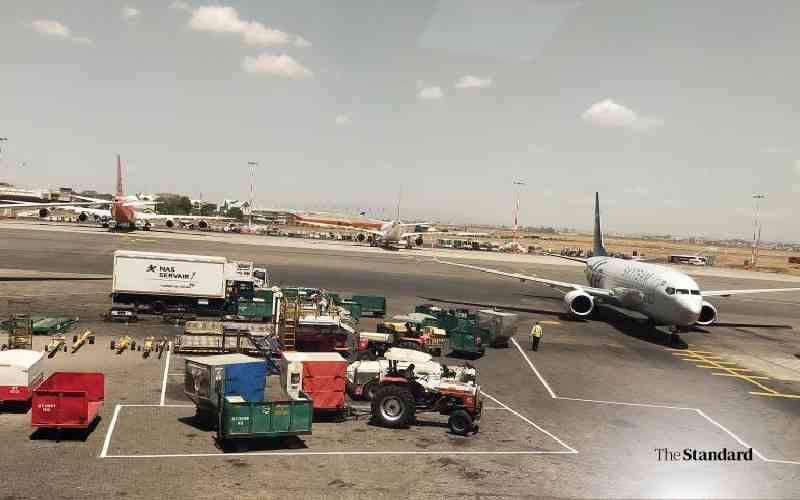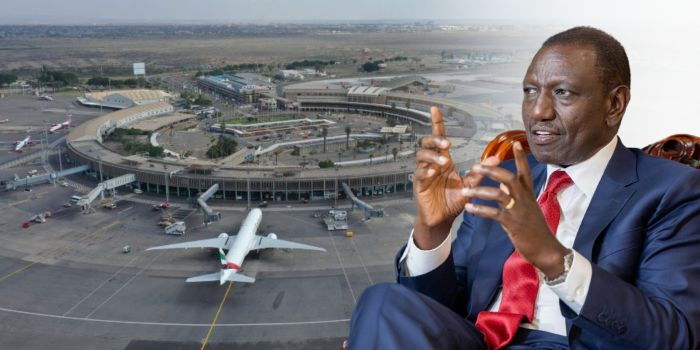India Takes Decisive Action To Strengthen Aviation Security By Overhauling Ground Handling Operations At Mumbai, Delhi, And Ahmedabad Airports - Travel And Tour World
Saturday, May 17, 2025

India has launched a bold and comprehensive overhaul of ground handling operations at Mumbai, Delhi, and Ahmedabad airports to eliminate foreign security risks and reinforce national safety. This decisive move, driven by rising geopolitical tensions and intelligence reports, prioritizes seamless airport operations while safeguarding critical infrastructure through trusted domestic partnerships and stringent security measures.
Mumbai International Airport, operated by the Adani Group, has taken decisive action to ensure national security by partnering with Indothai, a ground handling company, to take over the workforce and assets of Celebi Aviation. This move follows the Bureau of Civil Aviation Security’s (BCAS) decision to revoke Celebi’s security clearance, prompted by concerns linked to Turkey’s support for Pakistan, which raised serious national security issues.
Celebi Aviation was formerly responsible for handling nearly seventy percent of the ground operations at Mumbai airport. Their responsibilities spanned passenger services, load control, flight operations, cargo and postal handling, warehouse management, and bridge operations. This extensive role gave them significant operational influence at one of India’s busiest airports.
As part of the transition, roughly three thousand employees formerly working under Celebi will now be transferred to Indothai. To facilitate a smooth changeover, the BCAS has extended the validity of the existing Airport Entry Permits (AEPs) until May nineteenth. This grace period allows adequate time to issue new permits under Indothai’s management, ensuring continuity and minimal disruption for airport staff.
Indothai has extensive experience in ground handling services throughout India, currently operating at airports such as Pune, Kolkata, Amritsar, Varanasi, Calicut, Bhubaneswar, Guwahati, and Jaipur. Their experience in multiple locations positions them well to absorb Celebi’s workforce and assets effectively at Mumbai.
Meanwhile, at other key locations such as Delhi International Airport, existing ground handling providers like AISAL, AISATS, and Bird Worldwide Flight Services have been assigned the task of integrating Celebi’s personnel and resources. This approach aims to maintain operational stability during the transitional phase at various airports.
On that very day, Adani Airport Holdings formally declared the cancellation of its ground handling concession contracts with the Turkish firm Celebi at the Mumbai and Ahmedabad airports. This move highlights the broader strategic shift to eliminate foreign companies posing potential security risks from critical airport functions.
At the same time, Delhi International Airport Limited (DIAL) decided to terminate its partnership with Çelebi Airport Services India and Çelebi Delhi Cargo Terminal Management. These entities had been responsible for essential services such as passenger check-ins, ramp operations, and cargo handling, giving them substantial control over vital airport activities.
The Indian government’s recent directives came in light of intelligence reports revealing that the Pakistani military employed Turkish drones in recent conflicts along the border with India. Turkey’s ongoing vocal support for Pakistan, especially during sensitive operations like India’s Operation Sindoor targeting terrorist networks, has heightened national security concerns, prompting swift action from Indian authorities.
In response to these developments, the Ministry of Civil Aviation has urged airports to collaborate closely on temporary arrangements to minimize operational disruptions. Civil Aviation Minister Ram Mohan Naidu emphasized the paramount importance of putting national interest and public safety first, firmly declaring that these priorities are non-negotiable and must remain uncompromised under any circumstances.
This significant reorganization reflects India’s commitment to safeguarding its aviation infrastructure from external influences that may threaten security. By replacing foreign-controlled ground handling services with trusted domestic partners, Indian airports aim to maintain smooth operations while reinforcing national security measures.
The swift and coordinated response by multiple airport authorities and government agencies demonstrates the strategic importance placed on aviation security amid geopolitical tensions. With the seamless transfer of staff and responsibilities to experienced ground handling firms like Indothai and others, airports are expected to continue functioning efficiently, ensuring safety and service quality for passengers and airlines alike.
India is taking strong, decisive steps to secure Mumbai, Delhi, and Ahmedabad airports by replacing foreign ground handlers with trusted domestic partners. This move prioritizes national security and ensures uninterrupted airport operations amid rising geopolitical risks.
As India tightens control over critical airport operations, this move is likely to set a precedent for vigilance against foreign entities with questionable alignments, reinforcing the nation’s resolve to protect vital infrastructure while supporting the broader objectives of national security.












